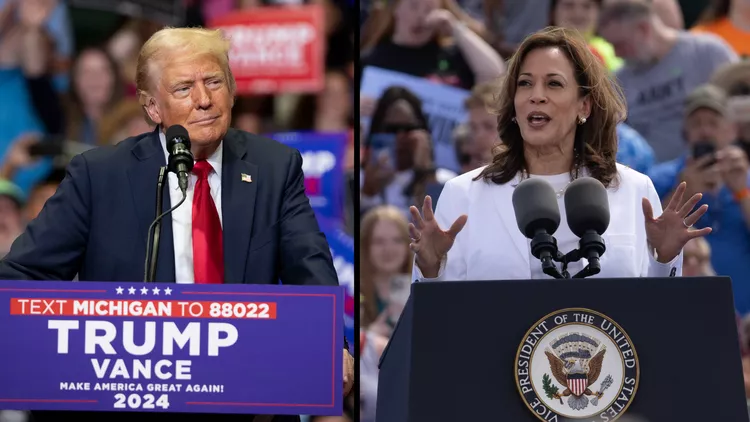Former President Donald Trump and Vice President Kamala Harris are set to present their contrasting economic visions in a highly anticipated televised debate on Tuesday night. With key issues like inflation, taxes, and student loan debt on the agenda, the two candidates will have the opportunity to directly challenge each other’s policies.
Trump has consistently advocated for steep and wide-ranging tariffs on foreign-made products, proposing tariffs of 10% to 20% on all imports and even higher rates on Chinese goods. He argues that such measures would boost American manufacturing and economic growth. However, most economists warn that these tariffs could backfire, driving up inflation by increasing costs for consumers. A recent analysis suggests that the average American family could see an increase of $2,600 in annual expenses under Trump’s proposed tariff regime.
In contrast, Harris supports a more targeted approach to tariffs, similar to President Joe Biden’s strategy of promoting specific industries, such as microchips and electric vehicles, to spur domestic development.
On the tax front, the debate is likely to focus on the future of the 2017 Tax Cuts and Jobs Act, which Trump signed into law. Trump plans to extend all provisions of the act, which primarily benefited wealthy individuals and corporations. Harris, on the other hand, has proposed tax reforms aimed at providing relief to middle- and low-income Americans. Her plans include a $25,000 credit for first-time homebuyers, an expanded child tax credit of up to $3,600 per child, and a corporate tax increase to 28% from 21%.
Student loan forgiveness is another critical issue where the candidates differ sharply. Harris supports Biden’s student loan debt forgiveness program, which has already forgiven $168.5 billion in student debt, despite ongoing legal challenges. Trump has criticized this policy, questioning its legality and arguing that it unfairly burdens taxpayers.
As the debate approaches, voters will be keen to see how these economic proposals stack up against each other and what impact they might have on the future of the U.S. economy. The debate will be broadcast live on Tuesday, Sept. 10, at 9 p.m. Eastern time.



